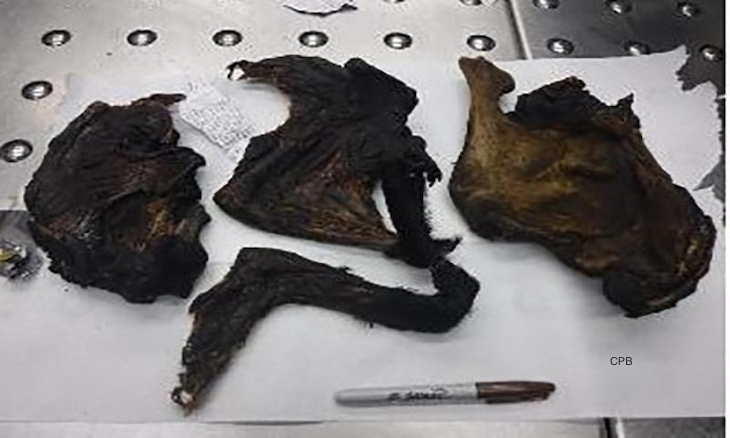A consumer advisory for bushmeat has been issued by the Minnesota Department of Agriculture (MDA). This illegal product was confiscated in December 2021 at the Minneapolis-St. Paul International Airport. There have been “multiple instances” of bushmeat being smuggled into Minnesota from Liberia, according to the notice. Those products were seized and destroyed.

Bushmeat is raw or minimally processed meat that comes from wild animals, usually monkeys and other nonhuman primates, cane rats (grasscutters), duiker antelope, and bats. These products carry a risk of human infection from different pathogens, including the Ebola virus.
Ebola is spread through direct contact with the blood or body fluids of a person who is sick with the virus or who has died from it. The virus is usually not spread through food, but in Africa, human infections have been associated with hunting, butchering, and processing meat from infected animals.
Bushmeat is often dried, smoked, or salted, which are preparation methods that are not sufficient to kill bacteria and viruses and other pathogens. There have been no reports of human sickness in the United States from preparing or consuming illegally imported bushmeat.
There is a $250,000 fine for bringing bushmeat into the United States. Any amount of this product that is found at U.S. ports of entry will be destroyed along with any items that may have come into contact with the meat.
According to the U.S. Customs and Border Protection (CBP), this illegal action is a trend. In the last week of 2021, officers seized more than 104 pounds of bushmeat. CBP Agriculture Specialists at the Minneapolis airport have observed U.S. citizens and lawful permanent residents returning from Liberia and declaring bushmeat as “fish” on their written declarations, and verbally, when questioned by officials. Most packages of bushmeat are wrapped in multiple layers of newspaper, plastic, foil, and tape. Often, both fish and bushmeat are contained in the same package.
LaFonda D. Sutton-Burke, Director, Field Operations-Chicago said in a statement, “Minnesota’s CBP agriculture specialists are focused on their mission to prevent entry of prohibited items from entering into the United States. The sheer volume of bushmeat our specialists intercept clearly shows how they play a critical role in preventing diseases from entering the United States.”
To report information about sales of bushmeat in Minnesota or the suspected smuggling of bushmeat into Minnesota or the United States, call the USDA Animal and Plant Health Inspection Service (APHIS) Anti-smuggling Hotline at 301-734-8534.




